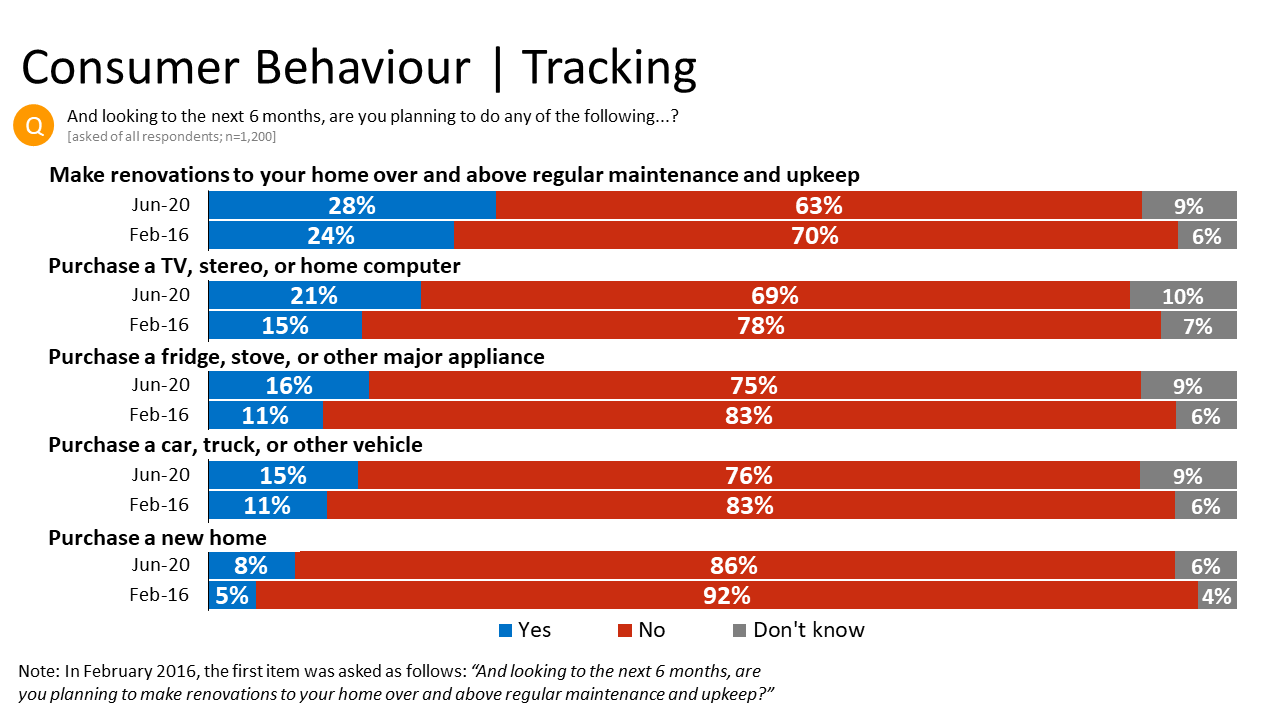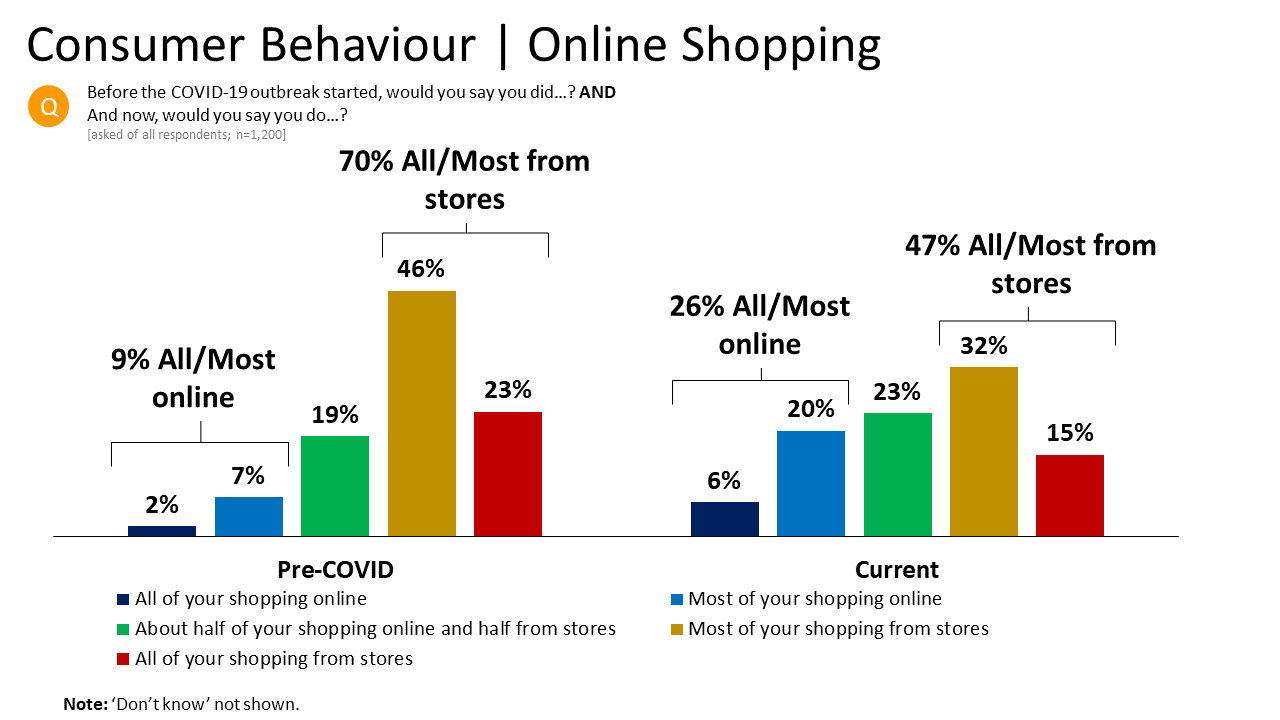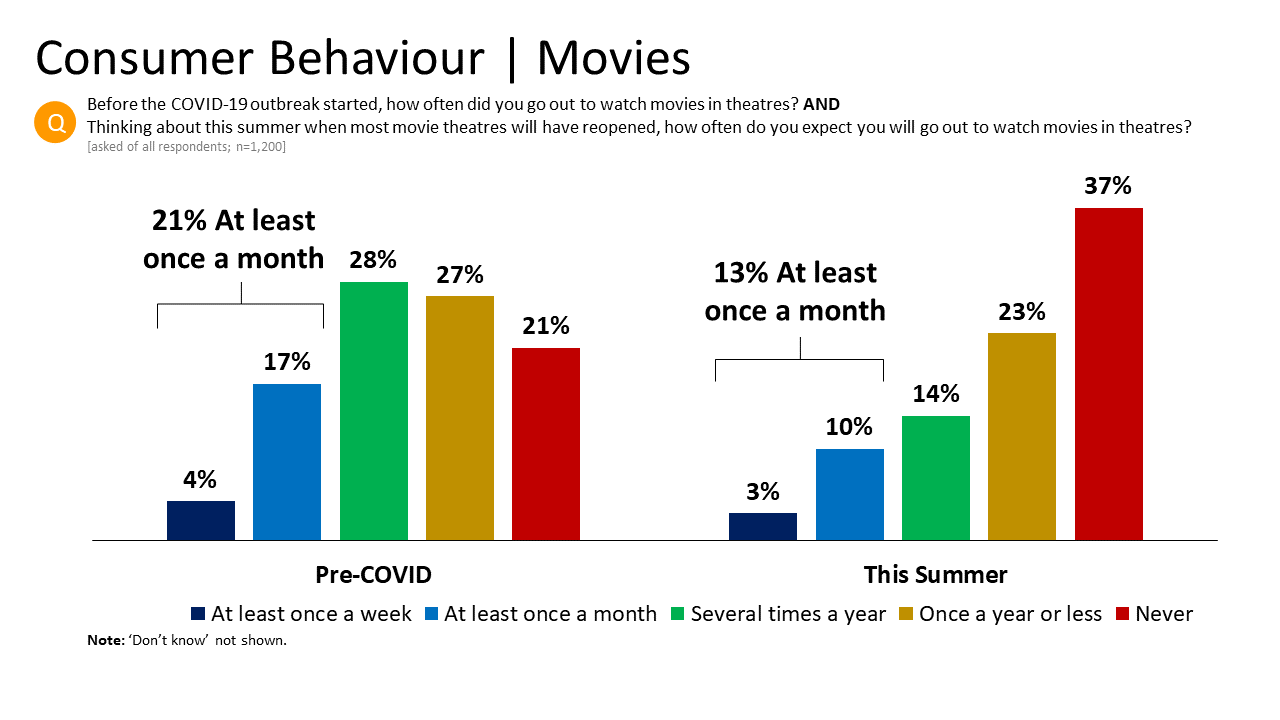Returning to Normal? COVID-19 and Consumer Behaviour
Today, INNOVATIVE is releasing results from our June survey on how COVID-19 is impacting consumer behaviour. The COVID-19 pandemic has forced Canadians to make dramatic changes to every aspect of their lives, from work and travel to shopping and entertainment. Do Canadians intend to return to their old habits? If not, what is holding them back from doing so?This online survey was in field from June 19th to 23rd, with a weighted sample size of 1,200 and oversamples in BC and Alberta. This report covers key results on how Canadians have changed their buying habits, banking habits, trips to restaurants and movies, as well as their flying habits. We have probed both on how much change has occurred as well as whether people intend to shift back to their old habits and any barriers holding them back from doing so. A detailed methodology is provided in the appendix.
The COVID-19 pandemic has forced Canadians to make dramatic changes to every aspect of their lives, from work and travel to shopping and entertainment.
Many Canadians report delaying major purchases since the outbreak of COVID-19 began – 17% delayed home renovations, 14% delayed the purchase of a new TV, stereo or home computer, and another 14% delayed the purchase of a new vehicle. These are very high levels of delay given the normal purchase levels for these major expenditures. However, looking forward to the next six months respondents are more likely to say they will be making a major purchase than they were in February 2016, an example of purchase intention in more normal times.

The number of Canadians working or studying from home has also increased significantly. When asked, only 22% of respondents say that before the pandemic hit, they worked or studied from home all or most days. When asked about their current behavior, twice as many (45%) say they now work or study from home all or most days. Among Canadians who are currently working from home more often than before the pandemic, two thirds say it is at least somewhat likely they will be asked to return to their place of work.
Almost two thirds (64%) of those who expect to return to their workplace are worried that it will put them at risk of catching COVID-19 but only 24% say very concerned. Those worries are being driven by concerns about social distancing and fear of poor behaviour by others.
Many Canadians have shifted their shopping and banking interactions online. When asked, 70% of Canadians say that before the pandemic they did all or most of their shopping in person. However now that number has fallen to less than half with only 47% saying the same. A majority (57%) of those who say they are shopping online more now than before say that while they will return to shopping in person as restrictions are eased, they intend to continue shopping online more than before.
The shift is even stronger when looking at online banking where 35% who are banking online more now than before say they intend to continue banking as they currently are and not returning to in person banking.

While restaurants and movie theatres are continuing to reopen over the summer, many Canadians do not expect to immediately return to them. Seven-in-ten respondents say that before the outbreak began they went out to eat at restaurants at least once a month but only 45% say they will go out at least that often this summer. Similarly, while 21% say they went out to the movies at least once a month before the pandemic, only 13% say they will do so this summer.

The most dramatic shift has occurred with travel by plane – 6-in-10 respondents (61%) say they never travel by plane currently, compared to only 22% who say they never flew before the pandemic began. Even as travel restrictions continue to ease, 40% of those who fly less frequently now say they plan to continue flying less frequently while only 21% say they will return to their old pattern of flying.
In most of these cases, fears of COVID-19 are the key barriers holding people back from returning to previous patterns. One major exception to that is banking where many people who have shifted to more online interactions say they prefer online to in-person. Flying is a second example where issues other than COVID-19 fears are contributing to a limited return to “normal”.
For detailed results, download our report here.




































